
The Darrell McClain show
Independent media that won't reinforce tribalism. We have one Planet; nobody's leaving, so let’s reason together!! Darrell McClain is a Military veteran with an abnormal interest in politics, economics, religion, philosophy, science, and literature. He's the author of Faith and the Ballot: A Christian's Guide to Voting, Unity, and Witness in Divided Times. Darrell is a certified Counselor. He focuses primarily on relationships, grief, addiction, and PTSD. He was born and raised in Jacksonville, FL, and went to Edward H white High School, where he wrestled under Coach Jermy Smith and The Late Brian Gilbert. He was a team wrestling captain, District champion, and an NHSCA All-American in freestyle Wrestling. He received a wrestling scholarship from Waldorf University in Forest City, Iowa. After a short period, he decided he no longer wanted to cut weight, effectively ending his college wrestling journey. Darrell McClain is an Ordained Pastor under the Universal Life Church and remains in good standing, as well as a Minister with American Marriage Ministries. He's a Believer in The Doctrines of Grace, Also Known as Calvinism. He joined the United States Navy in 2008 and was A Master at Arms (military police officer). He was awarded several medals while on active duty, including an Expeditionary Combat Medal, a Global War on Terror Medal, a National Defense Medal, a Korean Defense Medal, and multiple Navy Achievement Medals. While in the Navy, he also served as the assistant wrestling coach at Robert E. Lee High School. He's a Black Belt in Brazilian Jiu-Jitsu under 6th-degree black belt Gustavo Machado. Darrell Trains At Gustavo Machado Norfolk under the 4th-degree black belt and Former Marine Professor Mark Sausser. He studied psychology at American Military University and criminal justice at ECPI University.
The Darrell McClain show
John Kelly on the Complexities of Trump's Leadership
Can a former Marine General's candid insights change the way we view leadership? John F. Kelly, the longest-serving Chief of Staff under former President Donald Trump, joins us to share his firsthand experiences and concerns about Trump's leadership style. From authoritarian tendencies to a preference for military use against domestic opponents, Kelly paints a vivid picture of the risks involved when character and constitutional respect are overshadowed by personal loyalty. Through his stories, we question the implications of electing leaders who might not honor the rule of law or historical American principles.
John Kelly doesn’t hold back his reflections on Trump's controversial approach to governance. He dives into the unsettling reality of Trump's expectations of personal loyalty over constitutional oaths, sharing moments that shocked many, including Trump's lack of appreciation for those who served in the military. The episode explores how Trump's remarks about military service members reveal a deeper issue of empathy and understanding of sacrifice—two qualities essential for effective leadership. Kelly stresses the need to scrutinize a leader's character and fitness for office, even when their policies align with certain political objectives.
The conversation takes a broader turn, exploring the pitfalls of government assistance programs and the potential for abuse. We discuss how some might exploit benefits, using examples from popular culture to illustrate these concerns. This episode is a call to action for listeners to critically evaluate political figures and systems alike, urging for unity and healing in American politics. Kelly’s experiences and insights offer a sobering reminder: the stakes are high in ensuring leaders uphold constitutional values and foster true political reconciliation.
Welcome to the Darrell McLean Show. I'm your host, darrell McLean. Let's get into our episode. When it comes to the former Chief of Staff the longest-serving Chief of Staff of the former President. As the election comes near, kelly has come out and warned that he believes that Donald Trump meets the definition he said the F word of a fascist. Few top officials spent more time behind closed doors in the White House with President Donald Trump than John F Kelly, the former Marine General, who was the highest, longest serving chief of staff. With an election day looming, kelly, bothered by Trump's recent comments about employing the military against his domestic opponents, agreed to a three on the record recording discussions with the reporters from the New York Times, former President Trump, providing some of his most wide-ranging comments yet about Trump's fitness and his character.
Speaker 1:Kelly was the Homeland Security Secretary under Trump before moving in the White House of July 2017. He worked to carry out Trump's agenda for nearly a year and a half. It was a tumultuous period in which he grew and he drew internal criticism over his own performance and grew disenchanted and distressed by contact of how the part of the president that he considered at times to be inappropriate and reflecting no understanding of the Constitution. In the interviews, kelly explained that he expanded on his previously expressed concerns and stressed that voters, in his view, should consider the fitness and character when selecting a president even more than a candidate's stances on issues. In any cases, I would agree with some of his policies, he said, stressing that the former military officer he is not endorsing any candidate but, again, it is a very dangerous thing to have the wrong person elected to high office. He said that, in his opinion, Trump met the definition of a fascist and would govern like a dictator if allowed. He had no understanding of the constitution or the concepts of the rule of law. He discussed and confirmed previous reports that Trump had made admiring statements about the former dictator, adolf Hitler. He expressed contempt for disabled veterans and he categorized those who died on the battlefield of the United States as losers and suckers. Those comments first appeared to be reported in the Atlantic in 2020.
Speaker 1:Stephen Chong, spokesman for Trump and the Trump campaign, assailed Kelly's statements, calling Mr Kelly's account of his time in the White House, debunked stories and saying Kelly had de-clowned, had denied those and de-clowned himself. And so there's always something interesting when somebody says something. It's also very interesting if you can see a picture of something. When you don't have pictures, it's great to have some audio. See a picture of something. When you don't have pictures, it's great to have some audio, and so I'm going to get into some of the audios over these few interviews as well. Here's an expert from the audio file of Kelly's comments, where Kelly said that, based on his experience, trump met the definition of a fascist. In a response to a question about whether he thought Trump was a fascist, kelly first read aloud the definition of fascism that he had found online.
Speaker 2:Do you? What do you think? Do you think he's a fascist?
Speaker 3:Well, looking at the definition of fascism, it's a far-right, authoritarian, ultra-nationalist political ideology and movement characterized by a dictatorial leader, centralized hypocrisy, militarism, forcible suppression of opposition, belief in a of running America Again back to this issue of democracy is complicated, messy to operate, probably the worst kind of government there is, except for all the other ones. I think Churchill once said that and again our constitution, our foundry, is built in to the constitution and to the way our government operates, built in a lot of checks and balances and was didn't design streamlined and what not. So a lot of checks and balances and didn't design to go streamlined and whatnot. So, but certainly the former president is in the far right area. He's certainly an authoritarian and admires people who are dictators.
Speaker 1:He has said that, so he certainly falls into the general definition of a fascist for sure. So he says in there, if you heard Kelly say the distinction and he fits the definition accurately as he describes his former president. He said so, certainly, in my experience those are the kinds of things he thinks would work better in terms of running America, kelly said. He added certainly the former president is in the far right area. He is certainly an authoritarian. He admires people who are dictators. And he said that he certainly falls into the general definition of fascism for sure. Kelly said Trump chafed at limitations of power. He said he prefers the dictatorial approach to government. He says Trump never accepted the fact that he wasn't the most powerful man in the world, and by power I mean an ability to do anything he wanted anytime he wanted. And this was in response to a question when he was asked if Trump likes to govern like a dictator.
Speaker 2:If he was left to his own devices? Would he be a dictator if he didn't have people around him?
Speaker 3:Oh, I think he'd love to be. I think he'd love to be just like he was in business. He could tell people to do things and they would do it and not really bother too much about whether, uh what the legalities were and whatnot.
Speaker 1:But again, I I didn't know him before, so I can't believe he went on to say that he has was deeply troubled by the former president's recent comments about using the military against his domestic opponents. When kelly left the white house in 2019, he decided he would speak, but on the record only if trump had said something that he found deeply troubling or involved him and was wildly inaccurate. Trump's recent comments about using the military against what he called the enemy within were so dangerous that he said it was now time for him to speak out, and I think this issue of using the military to go after American citizens is one of those things.
Speaker 3:I think is a very, very bad thing, even to say it for political purposes, to get elected, I think it's a very, very bad thing, let alone actually doing it.
Speaker 2:So you're saying, when you saw him say that recently, and as he said on the campaign trail, that was something that really concerned you to the point that you thought, as you sat there trying to figure out what to do, you thought maybe it's worth answering some questions about this it is.
Speaker 3:And I go back to George Washington and how he set up before there was an America. How he set it up so that the military would stay out of, would not be used in the United States or domestically. In that the way forward was for military officers not to be involved in politics. And again, unless you're someone like me or Mattis or people like that that retired from the military, left the military, like Mark Esper or Mike Pompeo, and then go into a political job, whether it's elected or assigned by the White House, it's a little bit different because you've been involved in it. But for the most part and that's why I'm so hesitant to talk it's certainly never to tell or recommend to an American who they should vote for, because now they're out of the political jargon, back to being pretty much a retired, retired military officer who should not get too involved in this kind of thing.
Speaker 3:Yeah, I mean until the former president started talking about this and this goes back to my when I was in the White House at DHS. I was. You know, originally the conversation would be you know, mr President, that's outside your authority or you know that's a routine use. You really don't want to do that inside the United States. But now that he's talking about it, as I'm going to, do.
Speaker 1:It is again it's disturbing.
Speaker 1:I'm going to do it Again. It's disturbing. So I had a lot of questions about why John Kelly was so quiet all the time when there were stories that were up and they were about him specifically, and so I think he tries to answer the question for people like me when he says and so I think he tries to answer the question for people like me when he says I think the issue of using the military to go after American citizens is one of those things that is very bad, even to say for political purposes to get elected, it's a very bad thing, let alone actually doing it, kelly says. Kelly said that Trump was reportedly told, dating back to his first year in office, why he should not use the US military against Americans and the limits on his authority to do so. Trump nevertheless continued, while in office, to push the issue and to claim that he did have the authority to take such actions. Kelly says did have the authority to take such actions. Kelly says Originally the conversation would be Mr President, that's outside of your authority or you know that's a routine use. You really don't want to do that inside of the United States, he said. But now that he's talking about, that he is actually going to do it. It's again something disturbing.
Speaker 1:He said that he believed Trump stood alone in his lack of understanding the United States Constitution and the United States history. Kelly went on to say that if Trump, that Trump lacked a fundamental understanding of the basics of American values and what actually being the president is about, he said he's certainly the only president that has but all rejected what America is about and what makes America America in the terms of our constitution, in the terms of our values, the way we look at everything to include the family and the government. He's certainly the only president that I knew of, certainly in my lifetime. That was like that Mr Kelly said. He said flat out he just doesn't understand the values he pretends to talk about. He knows more about America and history than anybody, but he doesn't.
Speaker 2:I mean, is he the biggest threat to the country that you've seen in your life, out of all the threats like post 9-11, all these different things?
Speaker 3:I think he's certainly the only president that has all but rejected what America is all about and what makes America America in terms of our Constitution, in terms of our values. You know the way we look at everything to include family and government. He's certainly the only president that I know of that was certainly in my lifetime. That was like that.
Speaker 1:Now. He said Trump wanted personal loyalty to outweigh the Constitution. Kelly said that in the first few days of working for Trump as his chief of staff in the summer of 2017, he had to explain to the president that the government officials like himself had taken a personal oath to the Constitution and would place that oath over personal loyalty. Kelly said that Trump pressed him about that pledge and that he seemed to have no appreciation that top aides were supposed to put their pledge to the Constitution and, by extension, the rule of law above all else, including the president. Kelly says he sees Trump Putting personal loyalty Above the constitution and I guess that's why he decided that now was time To speak out.
Speaker 2:And did. Did the former president Appreciate the constitution? Did he appreciate any of these things?
Speaker 3:No, he, it was fascinating. He doesn't know a lot about American history, and certainly as a, I guess, a former executive in his civilian world. You know, you, I guess you can be a dictator because you can fire you. You, I guess you can be a dictator because you could fire people pretty easily and the only thing theoretically that that, uh, you have to follow is the law. But then again, an awful lot of people break the law and expect subordinates to break the law. I want to circumvent the law somehow and, uh, that's, that's where he was coming from, that's what was his worldview.
Speaker 2:Did he so be expected to be able to work for him to break the law? Well, when he would give and I think I've told you this many times when he would tell me that he wanted to do something.
Speaker 3:100% of the time I checked with the White House counsel because oftentimes he wouldn't have the authority to do what he wanted to do. And again, that's an interesting point because if you listen to certainly in my study of presidents and if you listen to presidents when they leave office, whether they write a book or do interviews one of the things that surprises them book or do interviews one of the things that surprises them initially was how little power they actually had and how much they had to work with the Congress to get things done. And most of them accepted that and worked within the rules of what the Constitution dictates. It's frustrating, I'm sure. Well, I know it's frustrating for them because, uh, you know their agenda that they're trying to push and suddenly they have to go to the congress to get money.
Speaker 2:And if the congress is not inclined, to to go along with it, then it's very frustrating, but that is the law. And then, when he was, when he was confronted with the fact that he couldn't do something, did he want to do it anyway. I mean, when he was confronted with the fact that he couldn't do something, did he want to do it anyway. I mean, when he was confronted with the fact that he couldn't do something legally, did he want to do it anyway.
Speaker 3:He would try to make the case that he did have the authority, that he did have the authority.
Speaker 1:So Kelly basically says that when it comes to the former president and the former president putting personal loyalty above the Constitution, kelly says that he talked about it, that him and Trump had talked about it and it was a concept that was new for Trump. He says that I guess it's the best way to put it, that I don't think he thinks. I don't think it's one he ever totally accepted. Kelly said that personal loyalty is virtually everything to the former president. As soon as someone in his orbit loses loyalty, kelly said, that person is then out of favor with Trump and your time is very short.
Speaker 1:Trump, kelly said wrongfully believed that the uniformed retired senior generals he brought in to work for him would be loyal to him personally above all else. Certainly a big surprise for him again was, if you remember, at the beginning of the administration he would talk about his generals. Kelly said I don't know why he thought that, but then a very big surprise for him was that we were those of us who were former generals and certainly people still in active duty that the commitment, the loyalty was to the Constitution, without question, without a second thought. Kelly added that was a big surprise to him that the generals were not loyal to the boss in this case, who was him. He goes on to talk about Trump and Adolf Hitler and he said Trump told him that Hitler did some good things. Kelly confirmed in previous reports that on more than one occasion he spoke positively of Hitler. He commented more than once that you know, hitler did some good things too, kelly said.
Speaker 3:He commented more than once that you know Hitler did some good things too, and of course, if you know history, again, I think he's lacking in that. But if you know what history you know Hitler was all about, it'd be pretty hard to make an argument that he did anything good.
Speaker 2:So what would you say when he said to you that Hitler did a lot of good things?
Speaker 3:Well, I'd tell him that I said you know, sir, if you first of all, you should never say, but if you knew what history hitler was all about, from the beginning to the end, uh, everything he did was in support of his racist, fascist uh life. You know, you know philosophy, so that nothing he did, you could argue, was good, it was certainly not done for the right reason, and um.
Speaker 2:But he would occasionally say that what would he say when you would lay that out to?
Speaker 3:him.
Speaker 1:Yeah, you, just you know that'd be the end of the conversation usually former general kelly went on to say I think that Trump has little appreciation for history. I think he is lacking in support of his racist, fascist life. You know his philosophy so that nothing he did you could argue was good and it was certainly not done for the right reasons. Kelly said that he was usually in the conversations but Trump would occasionally bring it up again. Kelly said Trump looked down on people and those who were disabled on the battlefield. In response to a question about previous stories about Trump having disdain for disabled veterans, kelly said Trump did not want to be seen in public with those who had lost limbs on the battlefield. Certainly he is not wanting to be seen with amputees amputees that lost their limbs in defense of the country, fighting for every American, him included, to protect them, but he did not want to be seen with them. That was a very interesting perspective for the commander-in-chief to have A very interesting perspective for the commander-in-chief.
Speaker 2:Does he have disdain for the disabled? Well, certainly his not wanting to be seen with the amputees. Amputees, at last, their limbs in defense of this country, fighting for every American, him included, to protect them, but didn't want to be seen with them. That's an interesting perspective for the commander-in-chief to have. Why didn't he want to be seen with them?
Speaker 3:He would just say look, it doesn't look good for me. So, anyways, I don't know.
Speaker 1:I'm not a psychiatrist. If you're a psychiatrist, I guess you could take a stab at some of these questions, but I'm not. He would just say it doesn't look good for me. He said Trump called service members who were injured or killed losers and suckers. That was a big one. That was in the news a year ago. But he said he called them losers and suckers, despite denials from Trump's and some aides.
Speaker 1:Confirming a statement he gave to CNN last year, Kelly said that on multiple occasions Trump told him that those Americans who had been wounded, captured or killed in actions were losers and suckers. The time in Paris was not the only time he ever said it. Mr Kelly said, referring to reports, that Trump told him that he did not want to visit a cemetery where American service members had been killed during World War I and where they were buried. Whenever John McCain's name would come up, he would go through this rant about him being a loser and all those people were suckers. And why do you people think that people getting killed are heroes? And he would go through a rant. To me, I could never understand why he was that way. He may be the only american citizen that feels that way about those who gave their lives and served the country. He said it was because of a lack. Kelly says it was because of a lack of not understanding, selflessnesslessness and sacrifice.
Speaker 2:But he basically said to you that those who died for America on the battlefield were losers and suckers, and he said it more than once. Yes, but he would say it would always it's something else would get him going. Oftentimes again, mccain he talked about and it was like almost a recording, but the point is anyways, he would say it at times sometimes unexpectedly, but he never could wrap his arms around why people would serve the country in uniform.
Speaker 3:What was in it for them? That was a general theme. I think that's much more powerful than talking about what he said about you know lucid lie. I think he just could never wrap his arms around white people with good things selflessly what's said for them, but he has a much more powerful, you know.
Speaker 1:But that's just me now. Kelly said that, on top of saying the losers and suckers, trump often questioned the decisions of Americans to sacrifice for their country. At the Arlington National Cemetery on 2017, on Memorial Day, trump toured the section where recently killed service members are buried, including Kelly's own son, robert, a marine who was killed in 2010 while fighting in afghanistan. While walking through the cemetery, kelly recounted that trump asked what was had been in it for those people giving their lives, and I thought he was asking one of those rhetorical kind of you know questions, kelly said, but I didn't thought he was asking one of those rhetorical kind of you know questions, kelly said, but I didn't realize he was serious. He just didn't see what was the point. As I got to know him again, this selflessness is something he just did not understand. What was in it for them? Kelly was asked whether Trump had any empathy and he said no, he doesn't. On, the importance of character over policy was the big question. I'm not recommending anything to anybody.
Speaker 3:I'm just saying other than that when you're looking to vote for someone regardless, you've got to look at the character and all of those kind of things and then start looking at the individual's policies. We can always, you know, if you're a conservative Republican, you know once you think what's gone on the last three and a half years hasn't been what you wanted to have happen to the country. But we can get by it because you might have, you know, a Republican come in in the future. But if a person's character isn't at least minimally acceptable, then I think that person can do a lot more damage. We've got to.
Speaker 3:I just wish I'll end with this I just wish, at the end of all of this whoever wins, that person and the leadership in the country certainly the political leadership in Washington, to include the House and Senate that people say okay, let's take a breath, let's step back. This has been really, really hard. Let's try to come back together as Americans, stop hating each other just because we have a difference of opinion on political issues. I just hope we do that somehow. I don't know if we will, but I hope we will. I hope whoever becomes the president will start that process. Let's become friends again.
Speaker 1:I have that same wish that, after it's all said and done, we can just get back to the business of being friends or the country, etc. Etc. I understand why it does. It's not that way and I do think it is not a new phenomenon. It may just be more pronounced because of our ability to see it all the time. Going into a bit of it.
Speaker 1:I would just say this I have friends who are Republicans, democrats, libertarians and even Socialists Democratic Socialists and there's a difference. I also have a friend who is a card-carrying Marxist and I listen to the things that people say, intently to figure out if there are grains of truth, if there's information that I don't know about, especially when it comes to when you have a certain type of philosophy or ideology that is your ontological foundation. So a lot of the things you believe, a lot of the things you admire, your principles, your passions and your purpose and your perspective are going to come with certain ideological underpinnings. And when you figure out I'll just say who you are or who you want to be everybody slowly but surely figures out where to go to funnel the information to themselves that will give them that perspective, that philosophy, that ideology, that echoes, that underpinning of that ideological framework. So I say that in that way to say that it is almost by design that Americans think very different things about fundamental topics. If you are a libertarian, you know where to go to get your libertarian take. If you are a conservative, you know where to go to get your conservative take. If you are a democratic socialist, you know where to go to get your democratic socialist take. If you are a separatist, you know a non-interventionist you know where to go. And if you're a card-carrying communist or a Marxist philosophy or you believe in critical theory or anything like that that I'm aware of, I know for a fact where to go to get my sourcing to hear critiques.
Speaker 1:And there's only so much time in a day, there's only so much time and space in your life, there's only so much bandwidth that you can consume that will allow you to consume so much, that will allow you to consume so much. So I think, and I do believe, that there are fault lines that we all have because of our barricades that we have put ourselves behind, and every now and then we realize that, oh, my goodness, there's these other people around who not only don't think like I think, they actually think everything I think is fundamentally flawed and that they may even go further and think it has no redeeming value, that they may even go further and think it has no redeeming value. And so there is going to be a natural and sometimes an inevitable clash of cultures, clash of civilizations. Once we add other factors into, why we also may have differences, that just is another complicating factor. So I'm talking about things like race, sex, class, geographical location, religion, ideology, etc. That just makes it more complicated.
Speaker 1:America, believe it or not, has always operated very I'm not going to say perfectly, but has always operated flat out, with several groups of people knowing about several things, coming to different conclusions and starting off with different foundational facts. And, if you're being charitable, it's always had the underlying assumption that we're only getting some of this stuff right. But the foundation of the country lies in such a way that we have a corrective model inside of our United States Constitution. So it is a way that we try to constantly gift a more perfect union. But because we know that reality is such that it is, your progress as a person does not always come without struggle, it does not come without setbacks, it does not come without heartache, it does not come with laughing, some crying, some disdain, some dismay, some outright disconnected from it. All you know it. You know it comes in multiple things. Give that to the country and then you won't always, I guess, be so doom and gloom, because America will have its good days, but it's also, it's gonna have's also. It's going to have its bad days. It's going to have its good decades, it's going to have its bad years, and one of the things that will be constant in that is because we are humans is when we're having a good day, we're going to attribute our good day to something Normally people in our camp, and when we're having a bad day, we will attribute that as well to somebody who is not in the camp.
Speaker 1:It is as American as apple pie and it's not new. It is just more highlighted because the algorithms that come with things like Twitter, now known as X Facebook, instagram, youtube, tiktok, reward the loudest and at times just from my observation, the stupidest person in the room, and that is why we have these random backlashes. The loudest person in the room when we were in class and we were in school was normally the most insecure person in the room, but the algorithms they reward that because, when we admit, at our core, we find those people entertaining. The darrell mcclain show has a call-in for voicemail or comments for anything you'd like to say on the show and, of course, I have not always done a good job of promoting it, but that phone number is 757-310-7303. That is 757-310-7303. I was able to check it and had a comment on something unrelated to what this show is on today and I think that we may find this interesting.
Speaker 4:Hey, darrell, I've got a question. For a long time there's been a lot of publications, coverage of areas in the world called Blue Zone, which, simply broken down, means the population there have a tendency to live for a very long time, much higher than averages in non-blue zone areas. As you can imagine, some of the blue zones are in Italy, japan, throughout Asia. So recently there was a report that came out that indicated that blue zone residents don't really live any longer than anybody else, because the survey results or the questions at the time were not capturing one key element, which was fraud. Apparently, in the Blue Zone areas, people were listing their parents as still being alive as a way of defrauding pension systems. Can you talk a little bit about this on your show, do a little research and give a nice summary? Thanks, I always look forward to your show.
Speaker 1:Now look, ladies and gentlemen, that is how you do it and, to be quite honest, um, there is a. There's something that we used to say us on the more government kid and should intervene sometimes, and that intervention should involve money. Uh, side of the aisle, we would always have arguments with our conservative counterparts. We would say there are certain people that we call riders in the system, and by riders in the system, that was our way of saying people who are going to be scamming.
Speaker 1:So anytime you have any program and a pension is a program that is distributing money that somebody earned you are going to have somebody who is A doing the right thing and just taking their pension. You're going to have somebody who is trying to game the system a bit, maybe to get more than they're entitled to while they're alive. You're going to have people trying to look for other things to subsidize or to get to work in concurrent fashion with the pension, and then you're going to have what you described, which is people who are not entitled to it at all figuring out how to get their grubby little hands on the pension. I used to watch a show called Shameless and they did this with their social security One of the, if I can remember correctly, either the grandmother or an aunt or something had passed away and had been gone for years, and they had buried the person in the backyard and was still collecting on the social security checks.
Speaker 1:Another thing that was common in the backyard and was still collecting on the social security checks. Another thing that was common in the show is the character Frank is on unemployment, social security, disability and would constantly do everything he could to not work. He would purposely fall over things, burn his hands, do everything he can to be in constant compliance, to not have to work and to be, therefore, to be able-bodied, but to constantly do things to where he was a rider in the system. It was truly shameless. But as they say, with humans comes the love of money, and when people love money and you get them addicted to that sweet, sweet nectar of free things, free to them, it's going to be very hard to make them part with those benefits and you will therefore create riders in the system. So I thank you this was a very great topic and call me back, uh, encourage other people to call me back for for more.
Podcasts we love
Check out these other fine podcasts recommended by us, not an algorithm.

The LUNSB Show with T-Bone and ChickBrew
Tony Knuckles
Over opinionated with Josh Scott
Josh scott
The Jamie Kilstein Podcast
Jamie Kilstein
The Back Row with Jamie Kilstein
Jamie Kilstein
Your Calvinist Podcast with Keith Foskey
Keith Foskey
BJJ Mental Models
Steve Kwan
Renewing Your Mind
Ligonier Ministries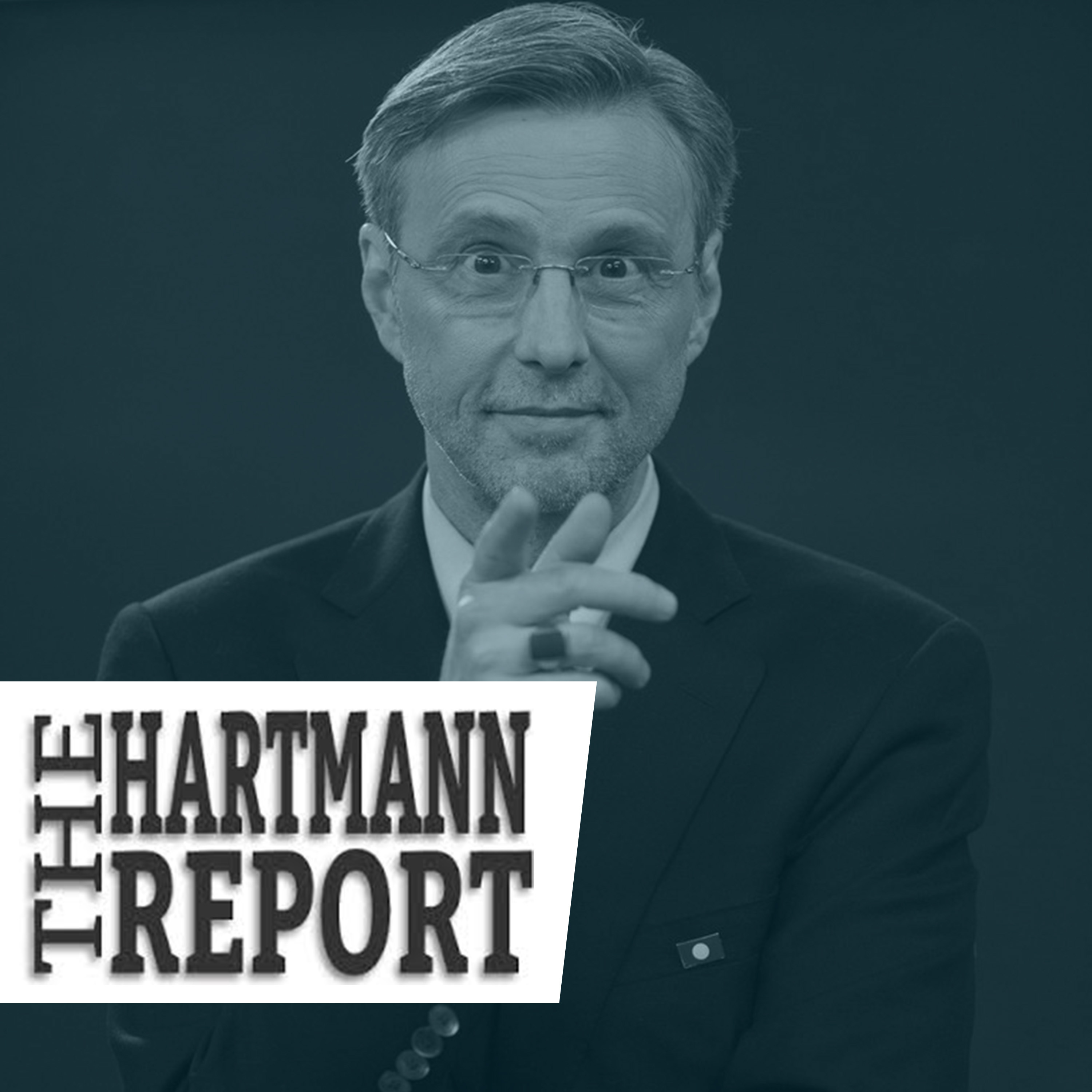
The Hartmann Report
Thom Hartmann
The Glenn Show
Glenn Loury
#RolandMartinUnfiltered
Roland S. Martin
Newt's World
Gingrich 360
Pod Save America
Crooked Media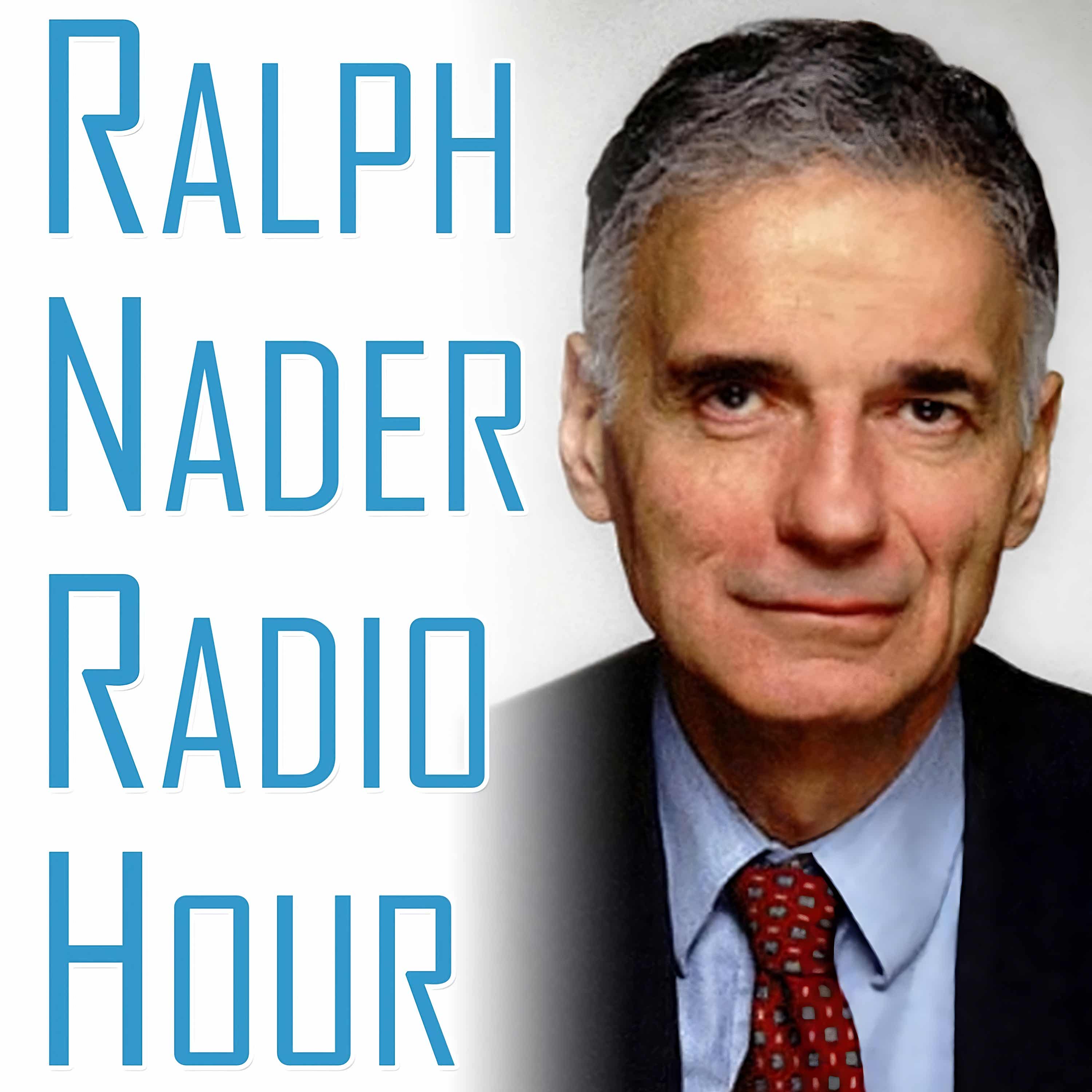
Ralph Nader Radio Hour
Ralph Nader
Bannon`s War Room
WarRoom.org
Bannon’s War Room
dan fleuette
The Young Turks
TYT Network
The Beat with Ari Melber
Ari Melber, MS NOW
The Damage Report with John Iadarola
TYT Network
The Majority Report with Sam Seder
Sam Seder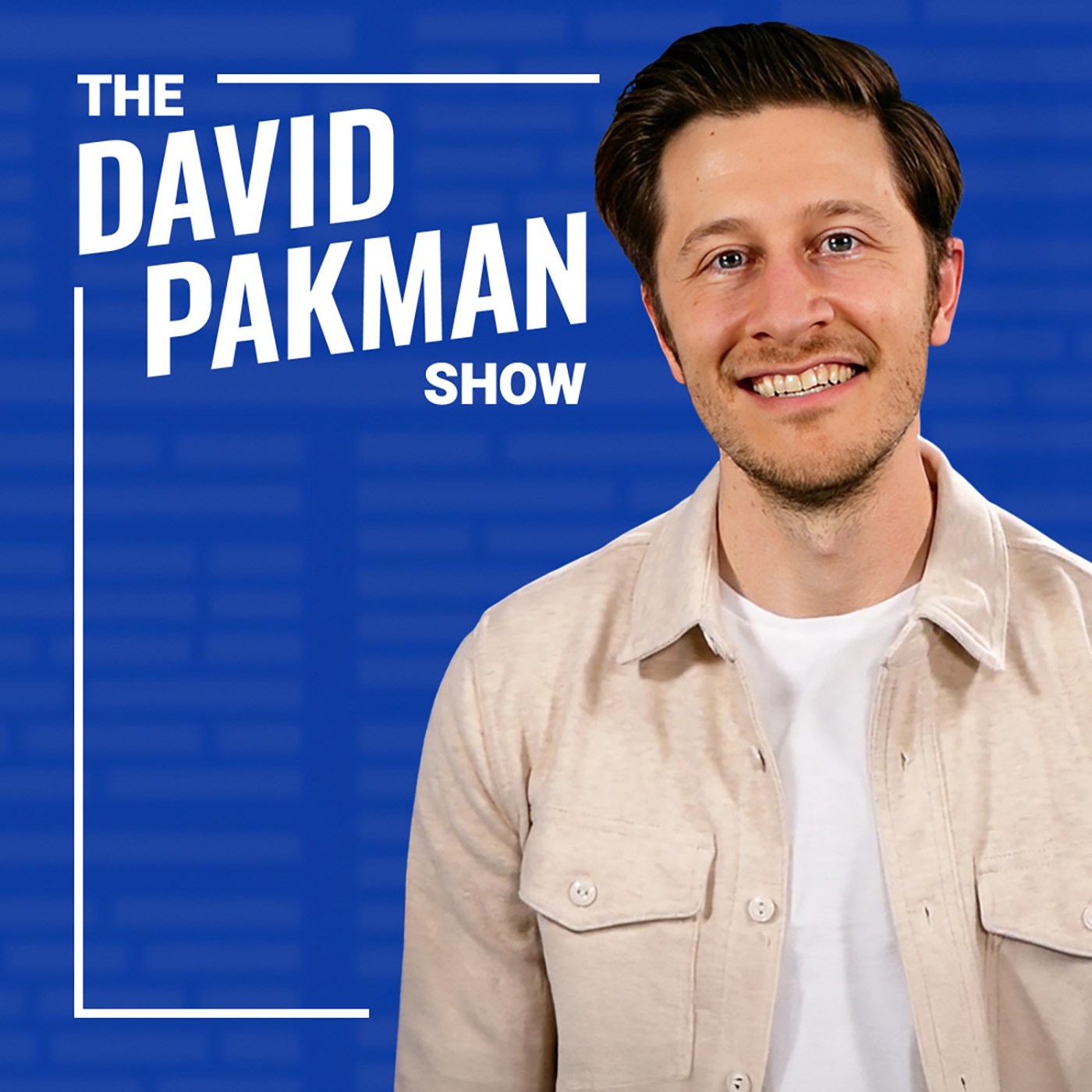
The David Pakman Show
David PakmanGet A Grip with Kendall Reusing
Kendall Reusing
Ultimately with R.C. Sproul
Ligonier Ministries
Grace to You: Radio Podcast
John MacArthur
The Briefing with Albert Mohler
R. Albert Mohler, Jr.
StarTalk Radio
Neil deGrasse Tyson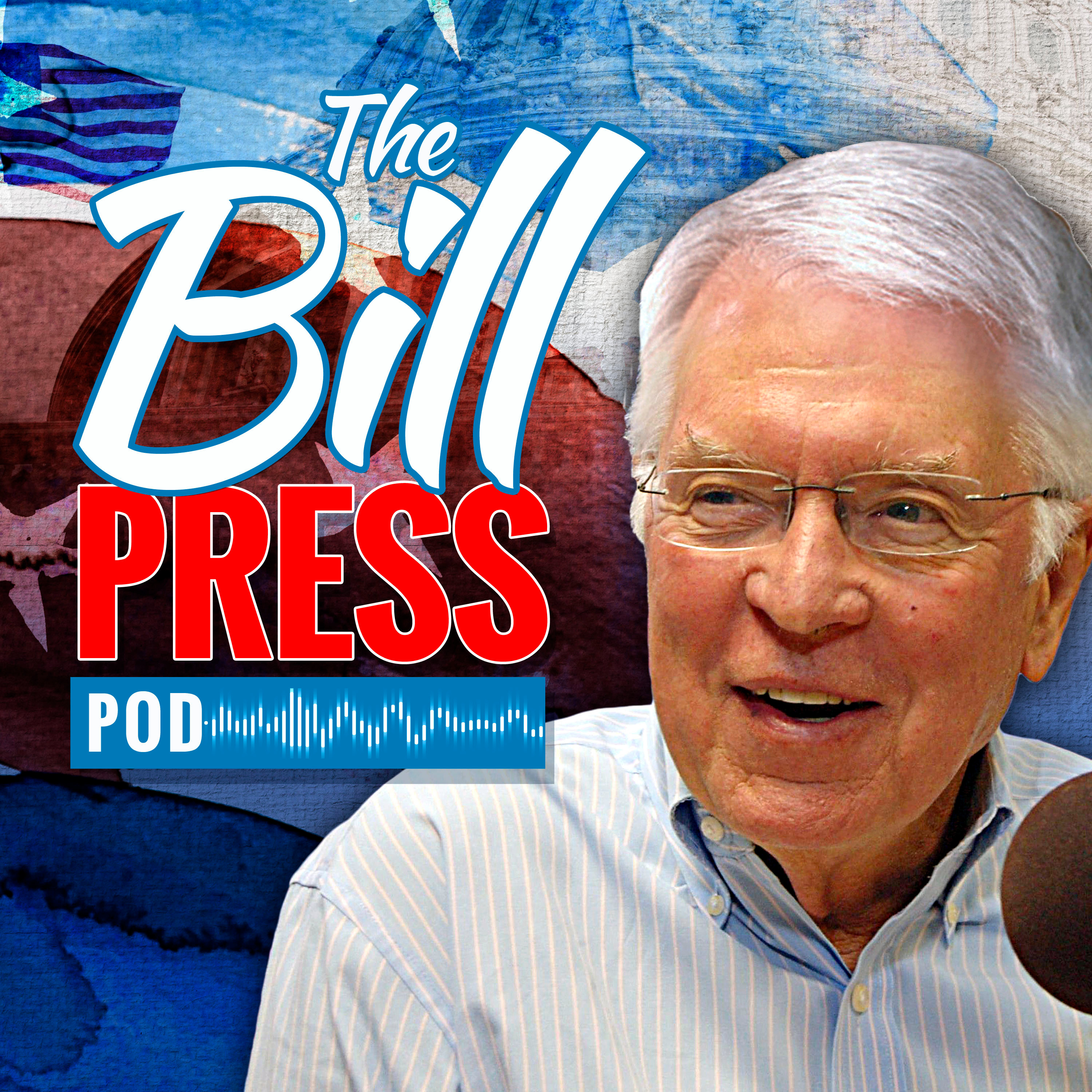
The Bill Press Pod
BP Pods
Ask Pastor John
Desiring God
The Weekly Show with Jon Stewart
Comedy Central
Ask Ligonier
Ligonier Ministries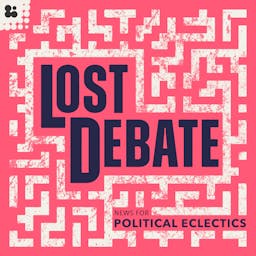
Lost Debate
The Branch
Coffee-Time-Again
Dale Hutchinson
5 Minutes in Church History with Stephen Nichols
Ligonier Ministries
The Ezra Klein Show
New York Times Opinion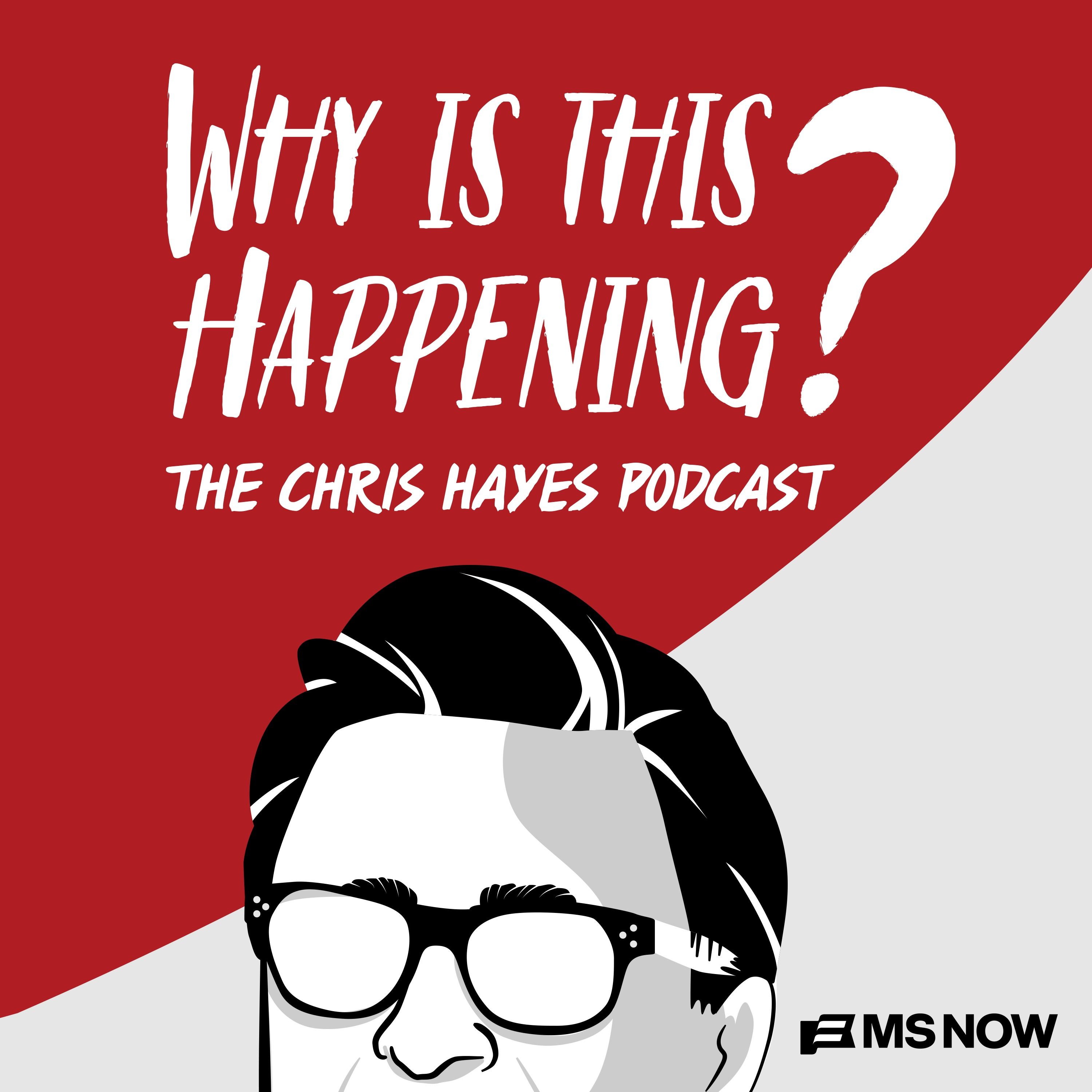
Why Is This Happening? The Chris Hayes Podcast
MS NOW, Chris Hayes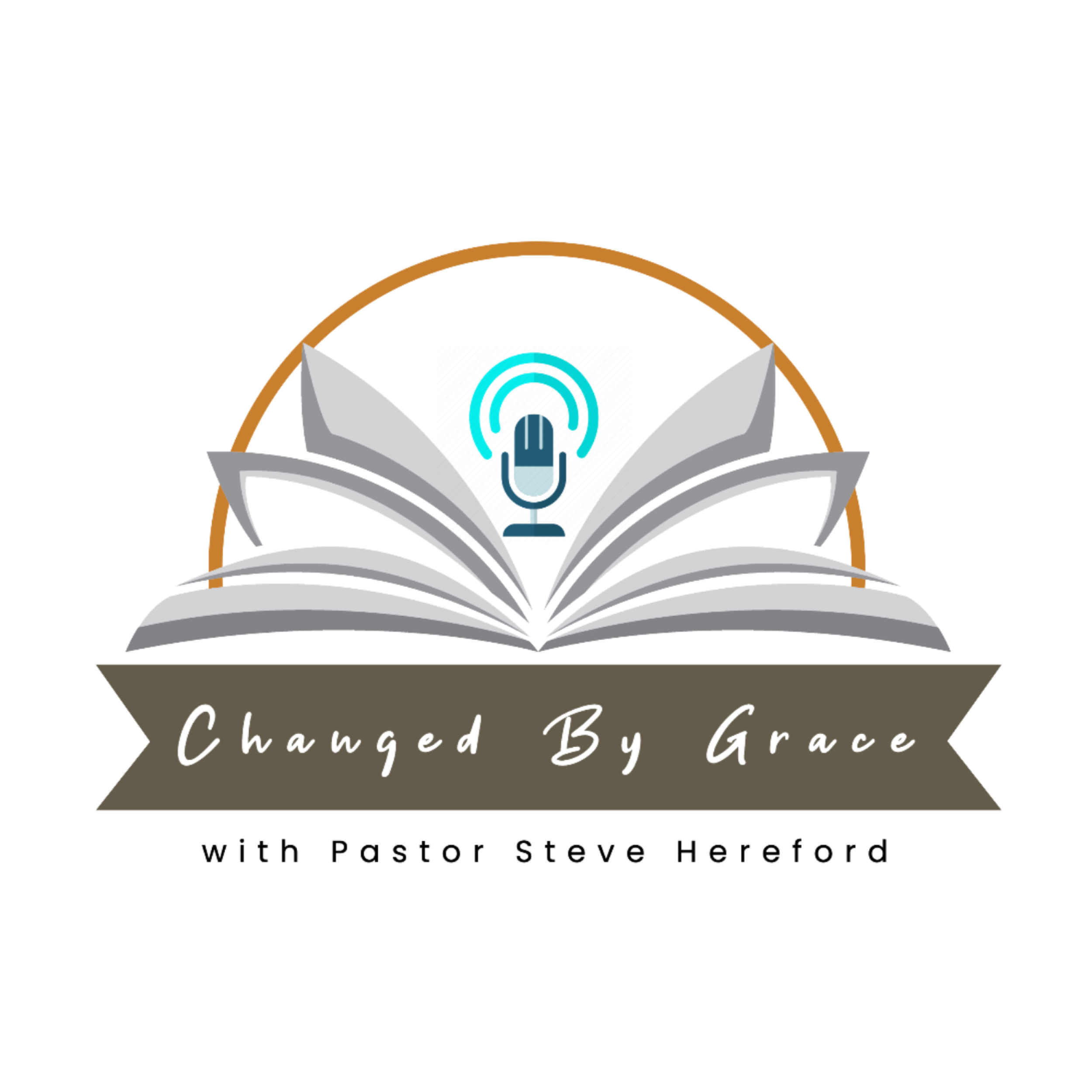
Changed By Grace
PodPoint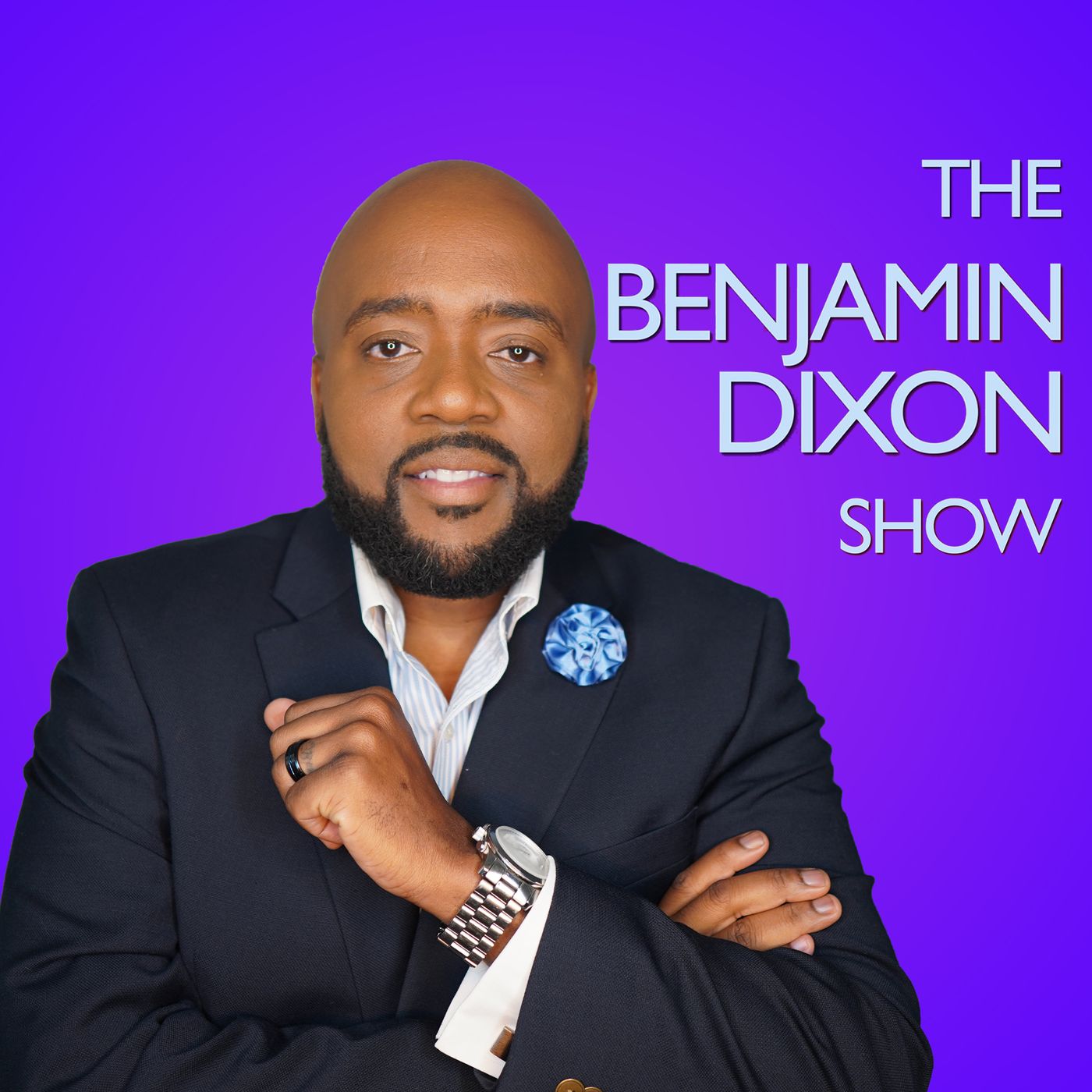
The Benjamin Dixon Show
The Benjamin Dixon Show
Thinking in Public with Albert Mohler
R. Albert Mohler, Jr.
Who Killed JFK?
iHeartPodcastsThe MacArthur Center Podcast
The Master's Seminary
Jean Jacques Machado : No Gi Required
Jay Zeballos
Trauma Bonding
Jamie Kilstein
This Day in History
The HISTORY Channel
The Ben Shapiro Show
The Daily Wire
The Sean Hannity Show
Sean Hannity
Breaking Points with Krystal and Saagar
iHeartPodcasts
The Kyle Kulinski Show
Kyle Kulinski